Armenia’s EU ambitions: A risky bet for the South Caucasus peace process Will Eurointegration mirage overshadow сommon sense?
On March 26, Armenia passed a law on its "intention to join the European Union." At the same time, Prime Minister Nikol Pashinyan sought to create the appearance of a balanced foreign policy by pledging to attend the parade in Moscow and instructing Armenian state institutions to participate in events with Russia. Nevertheless, the leadership in Yerevan remains focused entirely on the European Union, relying primarily on French President Emmanuel Macron, who, together with the British, is forming a new military bloc as a counterweight to the Americans. In doing so, Pashinyan is pulling both his country and the region into the broader vortex of global political confrontation.
A reasonable question
The second and final reading of the bill on EU accession in the Armenian parliament unfolded much like the first. Efforts over the past few weeks failed to secure broader support for the initiative. Selling an attractive façade without substantive content has proven difficult, especially since Armenia has not received an official invitation from the EU, though it is likely that figures such as Macron or European Commission President Ursula von der Leyen have made some promises to Pashinyan. Armenian MP Armen Gevorkyan, from the "Armenia" faction, remarked sarcastically: "The government's position is that the adoption of this law does not mean we are raising the issue of EU membership, but then why are we even adopting this law?"
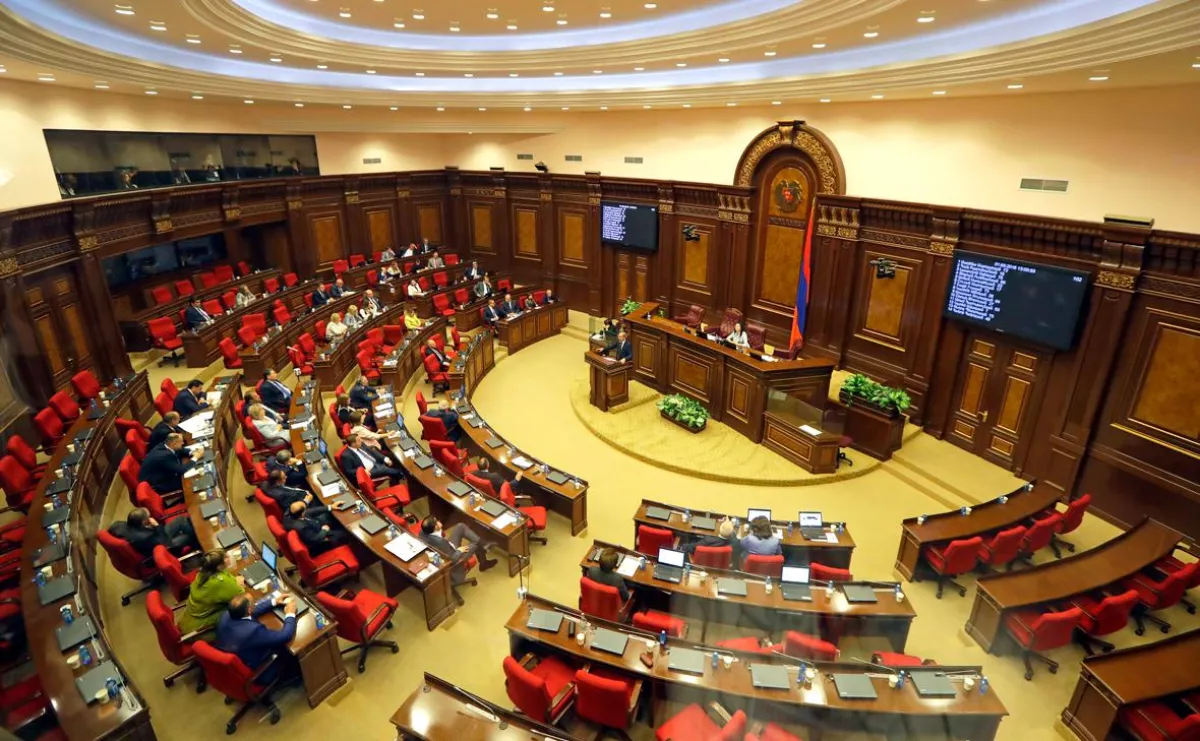
It is not surprising that Yerevan’s politicians are no longer discussing a referendum on EU accession, and the bill, which was supposedly introduced as a "civic initiative," was once again approved solely by an incomplete (!) composition of the ruling Civil Contract faction. Despite all efforts, it was once again passed by the same minimal majority, only 63 deputies out of 107, even though Civil Contract itself has 71 members. One opposition faction, I Have Honor, voted against it, while the other, Armenia, refused to participate in the vote altogether.
As Armenia faction member Anna Grigoryan recently explained, the initiative cannot be taken seriously because, over the past seven years, under Civil Contract’s rule:
-
Armenia has ended up on the EU’s aviation "blacklist";
-
The country’s dependence on the Eurasian Economic Union (EAEU) market has become absolute, while the Comprehensive and Enhanced Partnership Agreement (CEPA) with the EU has been implemented by only 40%;
-
Corruption has deepened, with a recent example being the disappearance of 1.5 billion drams ($3.831 million) from the state-run ANIF fund;
-
Armenians have witnessed "the unfortunate example of neighboring Georgia’s 20-year-long Eurointegration process."
In this regard, Grigoryan suggested that it would be more prudent to focus on implementing existing agreements and taking more measured steps in cooperation with the EU, rather than engaging in what she described as “unrealistic toasts” — a practice she attributed to Civil Contract.
The new law is indeed not far from a “toast” in its tone, as it proclaims that Armenia, “striving for the development of democratic institutions, the improvement of societal well-being, the strengthening of national security, resilience, and the rule of law, announces the beginning of the process of the republic’s accession to the European Union.” If one thinks about it, this sounds almost parodic.
Firstly, the notion of unilaterally joining an organization already appears absurd.
Secondly, in January, the Armenian government announced the start of the EU accession process, meaning this is now the second ceremonial launch of the same initiative. And how many more of these grand declarations are yet to come?
Thirdly, the very wording of this law implies that Armenia will develop its institutions, improve well-being, and restore order for the sake of the “white masters.” Yet, perhaps these are goals that should be pursued for their own sake, rather than being tied to the approval of foreign benefactors?

We have already written about how the authors of this law have used similarly degrading language from the very beginning, claiming that with EU accession, Armenians would become "one of the civilized peoples," along with other racist nonsense. Eastern European nationalists, while speaking about "independence," are in reality always in search of new masters, and Armenian nationalism serves as a striking illustration of this. Pashinyan is the political heir of the First Armenian Republic, the only state in the region that openly sought to place itself under a semi-colonial mandate, specifically under American administration. At the time, Armenia was saved from becoming another Philippines or Puerto Rico only because the Americans refused to engage with a distant country.
Scandal on May 9 looming
To fully understand this latest move by the Armenian leadership, it is not enough to consider only the domestic Armenian context, even though it is clear that Pashinyan’s team is exploiting the mirage of "Eurointegration" within the country. The new law must be viewed primarily in an international context. As Armenia’s Deputy Foreign Minister Paruyr Hovhannisyan admitted, "The law on Armenia’s EU membership does not include an operational part with specific actions. It is more of a political message."
The most crucial nuance here is that Yerevan is, de facto, coming close to becoming a "client" of Paris, with Pashinyan aligning his foreign policy steps with the French leadership. Armenia’s latest high-profile move toward Eurointegration came just one day before the Paris summit, where the "new Entente" — represented by British Prime Minister Keir Starmer and French President Emmanuel Macron — continued forging a coalition for intervention in Ukraine and even the possible expansion of war in Eastern Europe.
Furthermore, Pashinyan’s clear coordination with Macron allows for another assumption about the motives behind the Armenian prime minister’s recent actions and suggests that new provocations may soon follow. Let’s recall Pashinyan’s provocative behavior at the December summit of the Eurasian Economic Union (EAEU), which only avoided turning into a full-fledged scandal because the Russian side decided to de-escalate the situation. First, he refused to host the summit in Armenia, forcing it to be held near St. Petersburg, only to then not attend in person under a flimsy pretext. Despite holding the rotating chairmanship remotely, he deliberately made other heads of state wait and even attempted to prevent them from speaking.
All of this is even more striking given that Pashinyan remains dependent on Moscow and profits in the billions from anti-Russian sanctions and the mechanisms for bypassing them. At the time, his behavior seemed inexplicable, but shortly afterward, we saw a similar display of defiance from Ukraine’s leader in Washington, culminating in a scandal broadcast live. Zelenskyy, without hesitation, acted this way toward Trump, even though the survival of the Ukrainian government itself depends on him.
Coincidence? I don’t think so. The fact is, behind both Pashinyan and Zelenskyy, there was the shadow of Macron, “Iron Ursula,” and the rest of the European liberal elite. Just a few days later, it became clear that the Ukrainian president had traveled to Washington with solid guarantees of support from Macron and other European allies. In other words, he had at least a carte blanche to take a hardline stance against Trump, and perhaps even direct instructions to orchestrate what we witnessed — an act in the interests of European liberals trying to undermine Trump and help the revival of their allies in the US Democratic Party.
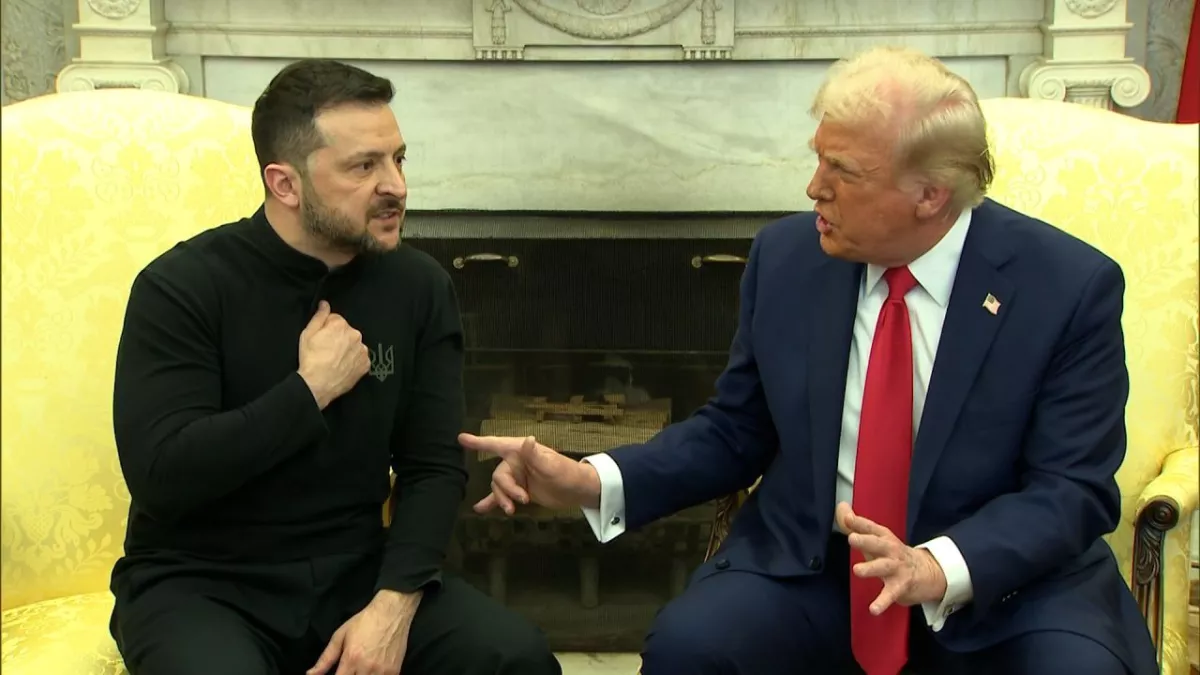
Considering this, the incident at the White House made Pashinyan's "performance" at the December EAEU summit seem even more significant. Could it be that Pashinyan had coordinated his position with Macron and European allies before putting on his dramatic display at the EAEU event?
Taking these points into account, one might speculate that Pashinyan’s agreement to attend the May parade in Moscow could be part of a similar radical operation, serving the interests of his strategic allies — Macron and the "new Entente."
Think about it: in light of the recent calls from Macron and other European leaders to escalate the confrontation with Russia, there is no doubt that, just as Ukraine became expendable material in the disputes between global powers, Armenia might be next.
Pashinyan began moving toward closer ties with the EU, relying on Macron’s promises, but without any clear guarantees from the EU or even France itself, which has only provided symbolic military supplies. In other words, Armenia has not been invited to the table as an equal. And as US Secretary of State Antony Blinken once taught us, in modern imperialist politics, "if you’re not at the table, you’re on the menu."
Like Yanukovych or Zelenskyy?
Perhaps, while trying to navigate this complicated situation and observing the interactions between the US and Russia, the Armenian prime minister, on March 20, gave instructions to Armenian government bodies to once again "actively participate in joint activities" with Russia. However, he did this in a rather strange way — by leaking information about this directive to the press. On the same day, deputy foreign ministers from both Russia and Armenia held talks in Moscow, and not long before that, the Armenian Foreign Ministry had stepped up its activities in non-Western directions, expressing interest in relations with Russia, Iran, and even Georgia, which resists Western pressure!
Maybe Pashinyan is actually trying to play not "Zelenskyy's game," but "Yanukovych's game," by combining Eurasian and European integrations? The nominal author of the Eurointegration initiative, Artak Zeynalyan, reassured that the conditions for this are ideal — the European Union is ready to accept Armenia, and this is about Armenia entering a 450-million-strong market, not about leaving the EAEU.
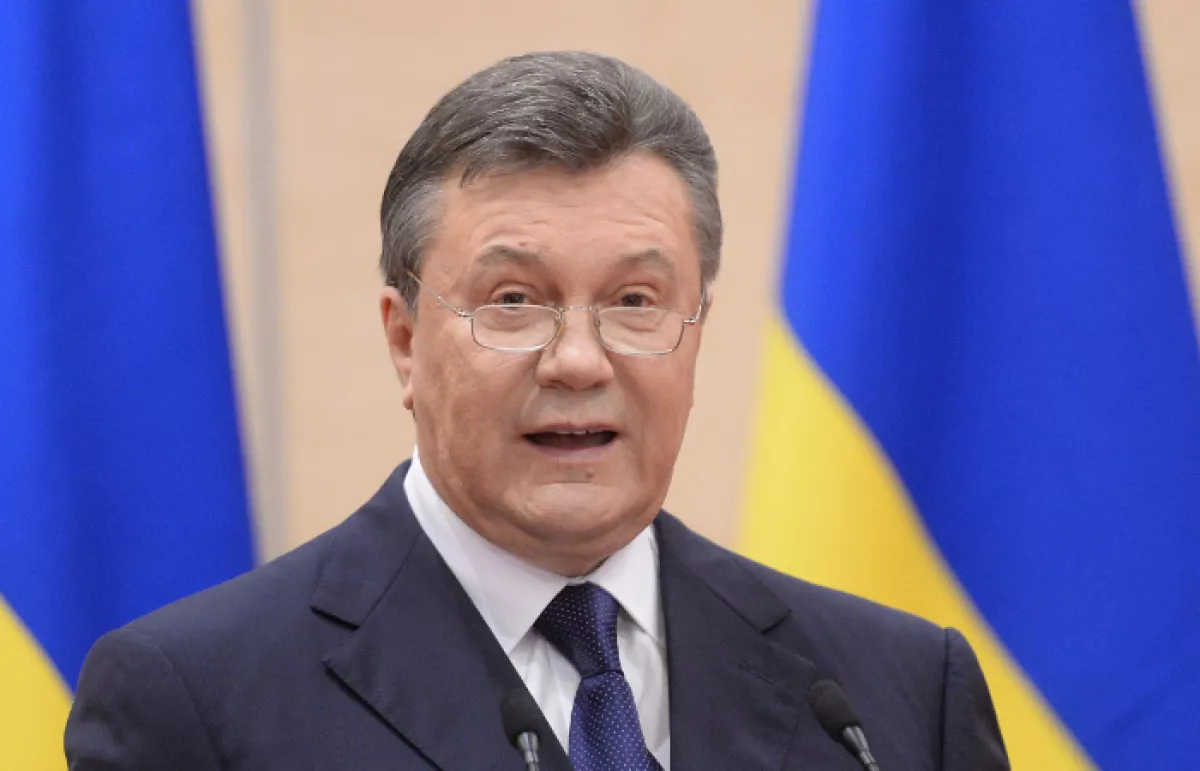
Let us recall that at one time, Ukrainian President Yanukovych tried to do exactly this, despite stern warnings from the West. When he ignored them, he was overthrown by the pro-Western opposition after the bloody Maidan, just days before the elections! The origins of the current Eastern European flashpoint of world war can be traced back to those events. Pashinyan is also constantly warned by all sides about the inadmissibility of “combining” both directions, yet he seems to continue despite the horrific precedent.
No, he does not continue. After making an awkward bow toward the Kremlin, Armenia’s ruling party immediately rushed to demonstrate that their true allegiance lies with the EU and France. In the current tense international situation, Western partners will not be patient and will punish accordingly.
So, immediately after the leaks to the media with loud statements, on March 25, the Speaker of the Armenian Parliament, Alen Simonyan, took the stage. He denied rumors that Prime Minister Pashinyan had ordered the intensification of cooperation with Russia, specifically ruling out the possibility of resuming the trilateral commission on restoring transport communications with Azerbaijan. Furthermore, Simonyan stated that revising Armenia’s stance on the Collective Security Treaty Organization (CSTO) was out of the question. Attempting to provoke a reaction from the Russian side, he did not hold back: “It is the CSTO that should see if it exists or not. And, if it does, it should declare where the border is, what it should do, and what it has not done.” In other words, Simonyan is again demanding that the CSTO take responsibility for something it never promised to do — engage in a war with Azerbaijan over territories captured by Armenian nationalists and over the still-undetermined border of Armenia! In other words, Simonyan is echoing the same revanchist rhetoric, but with a liberal twist.
Additionally, one day before Simonyan's briefing, the Armenian Foreign Ministry essentially reversed its previous statements and announced its intention not just to continue cooperation with the de facto semi-military EU monitoring mission, but also to “discuss a new mandate for EU observers,” noting that “cooperation should not necessarily be limited to border issues.”
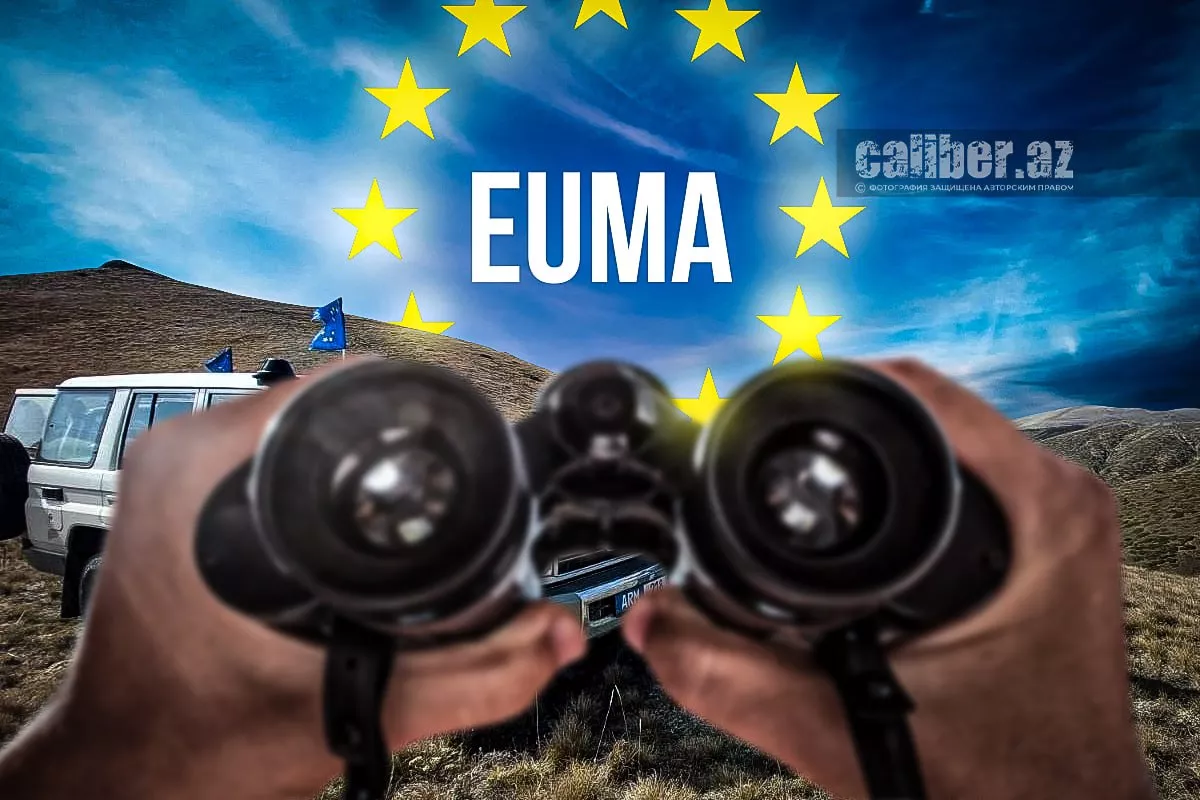
In short, around the middle of March, the Armenian leadership was promised something from the EU, and in response, they decided to take a harder line. After listening to their European friends, the Armenian leaders abandoned their brief attempt at flirting with Moscow and are now clearly counting on EU assistance, including revisiting their more concrete promises to Azerbaijan. These promises were specific: for instance, on March 13, Pashinyan declared that "Armenia agreed that after the peace treaty comes into effect, neither side should station third-party forces along the common border." The next day, March 14, it was announced that the text of the peace agreement between Azerbaijan and Armenia had been agreed upon, one of the points of which included a commitment by both sides not to deploy foreign forces on the border! This was seen as a breakthrough in the peace process — after agreeing on fifteen points of the draft treaty, the sides had been unable to agree on the final two, one of which involved the commitment not to station foreign forces along the border.
And immediately after the announcement that the agreement had been finalized, Kaja Kallas, the EU's chief diplomat, intervened and promised (or perhaps threatened?) to "provide additional support and expertise if the parties request it." The EU is willing to help the sides with this agreement, even though Baku and Yerevan had already managed to reach an agreement without their help or that of other benefactors. Nonetheless, the overseas officials still want to "help" shape the Caucasus, a region they clearly don't understand. After this "help" was announced by Kallas, Yerevan began to undermine the results of the negotiations, once again revisiting a key provision of the agreement that is now blocking the entire process. This, however, should not surprise us — European "assistance" in "settling" conflicts can be seen in prominent examples, from the still-fractured Bosnia to the devastated Libya.
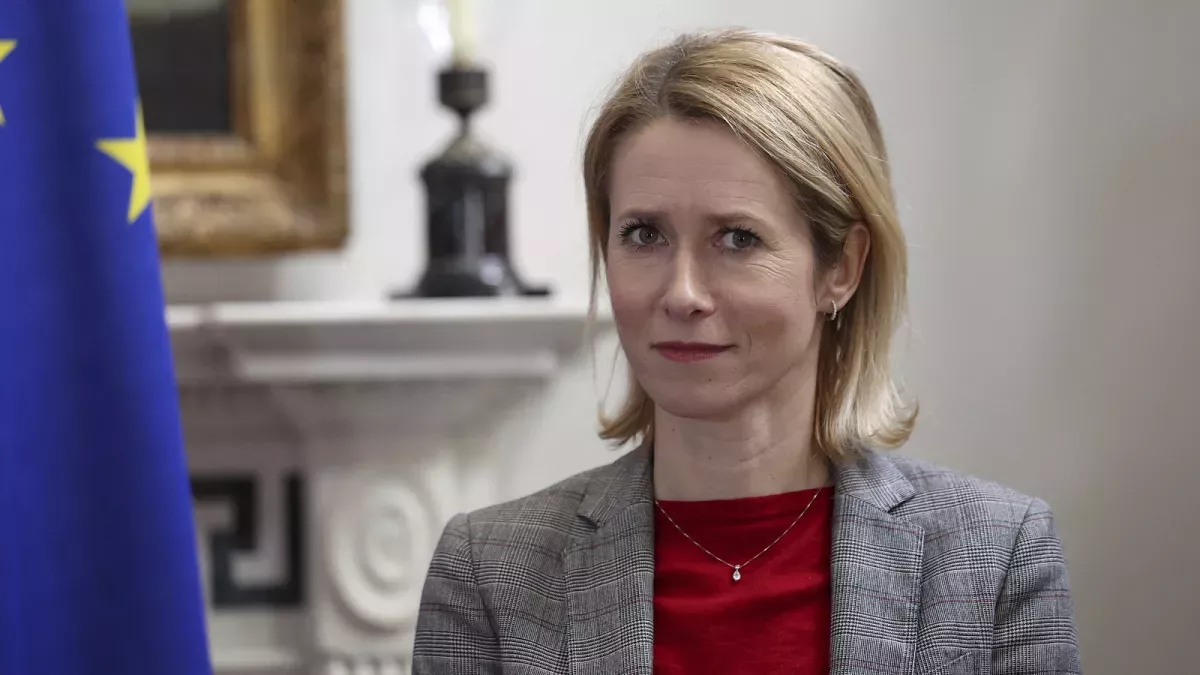
In other words, under the banner of "EU integration," there are a variety of political intrigues at play, including those from revanchist circles in Armenia. It is no surprise that Azerbaijan insists on removing all remnants of the aggressive ideology of Armenian nationalism from Armenia’s Constitution, to safeguard itself and the entire region from its potential revival. While the current authorities seem open to addressing this issue, is it truly sincere? After all, unlike Armenia’s inclusion in the EU, Armenian leaders want to put this matter to a referendum. Moreover, the Armenian Ministry of Justice has warned that the draft will only be ready by the summer of next year — giving Pashinyan’s team time to hope that the changing geopolitical situation and the "EU integration" pushed by Pashinyan and Macron will help them, if not derail the peace process, then at least try to roll back much of the dismantling of the territorial conquests of Armenian nationalists. In other words, while they may publicly agree, in practice, they are likely to bury the peace process in a demagogic plebiscite — because, after decades of nationalist propaganda against constitutional changes, opposition doesn’t only come from the political opposition but also, according to a February Gallup International survey, 59.6% of Armenia’s citizens!
Overcoming this legacy will take a long time, as we can see, even now, revanchist motives are being voiced by a wide range of Armenian politicians, including those who supposedly severed ties with the past, like Simonyan. It is also unfortunate that, in its confrontation with Russia, the European Union and European powers are de facto enabling this ambiguous stance of the Armenian establishment. The EU and Armenia are drawing each other into their conflicts, and only Azerbaijan's firm stance can prevent the harmful consequences of this strange policy from affecting the region.








